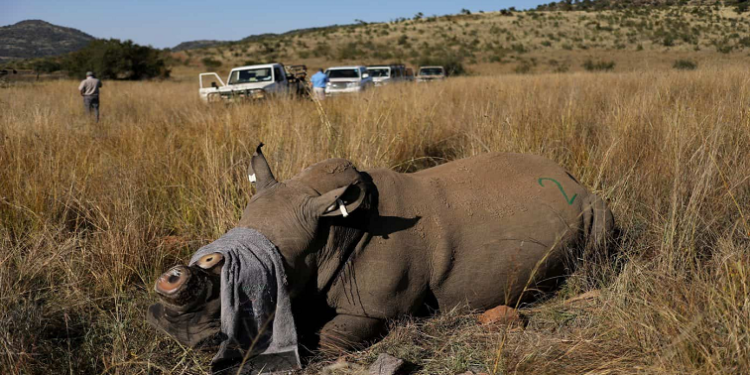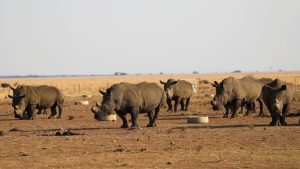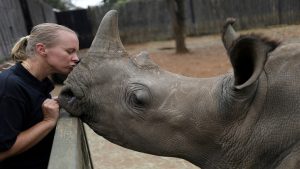South Africa remains the stronghold for the world’s rhino population despite high levels of poaching.
A webinar by the World Wide Fund for Nature (WWF) in South Africa and the Wildlife Justice Commission, has unpacked the details of a report analyzing the criminal dynamics driving rhino horn trafficking.
Africa rhino lead with WWF SA Dr. Jo Shaw says between 2018 and 2021, at least 2 707 poaching incidents were recorded across Africa. 90% of these took place in South Africa.
She also elaborated on work published around the effectiveness of dehorning in Zimbabwe that looked at the survival rate of female rhinos and their calves. Shaw says the data showed in favour of dehorning to protect the species.
“What this analysis proved was that dehorned rhinos and their calves had higher survival rates than rhinos that weren’t. Cause some people were concerned that removing the horns from adult females might make their horns more at risk to predators but that wasn’t found to be the case.
Certainly, anecdotally it does seem that the reserves that were dehorning have very effective protection and lower poaching losses,” Shaw adds further.
Director of Intelligence at the Wildlife Justice Commission Sarah Stoner is calling for wildlife crime to be recognised as transnational crime and not simply as a conservation issue.
According to Stoner, “Our analysis found that rhino horn is most often smuggled with no concealment at all so around 1/3 of horns that were seized in the last 10 years indicate there was no attempt to hide the contraband in the shipment. So we do feel this could indicate that traffickers are more reliant on corrupt elements to move rhino horn shipments through that supply chain and that those actors can provide an efficient guarantee of safe passage.”
SA remains a stronghold for World’s Rhino population despite poaching:






